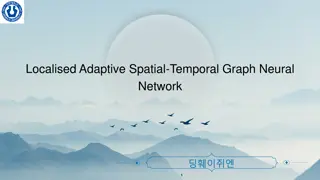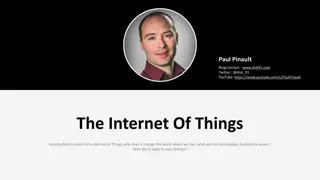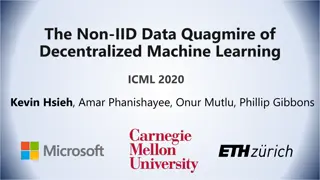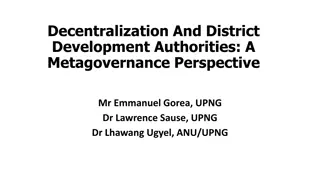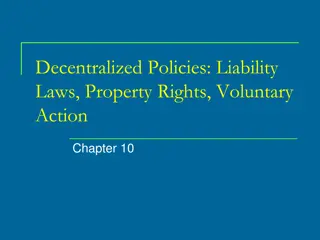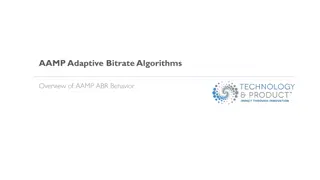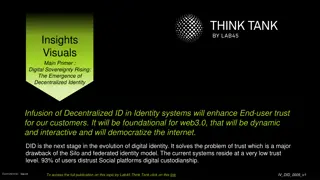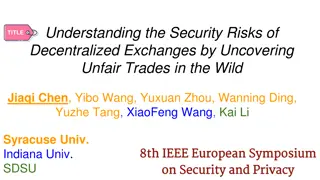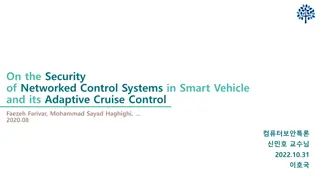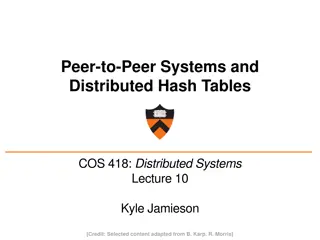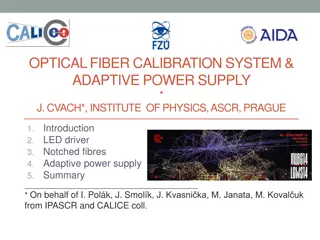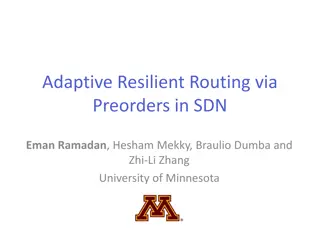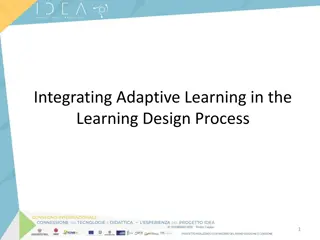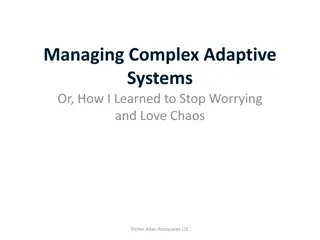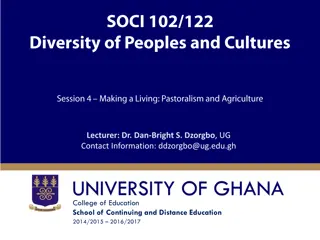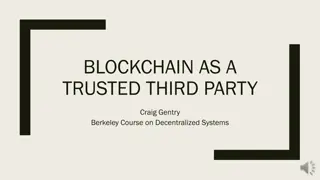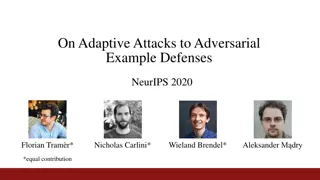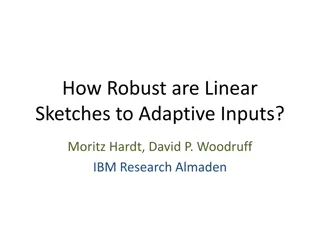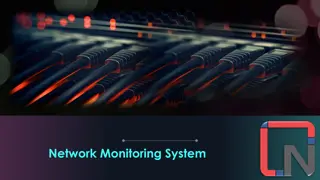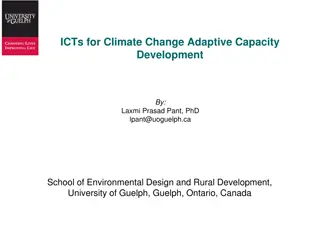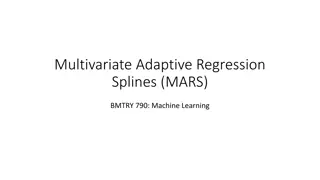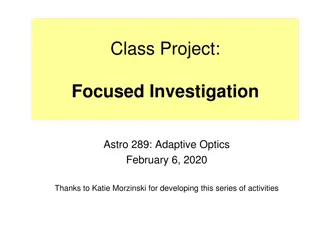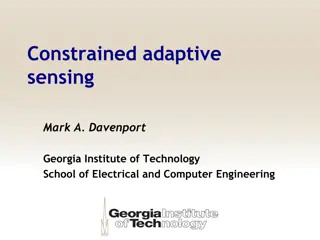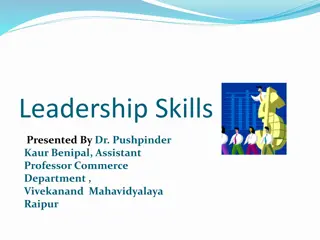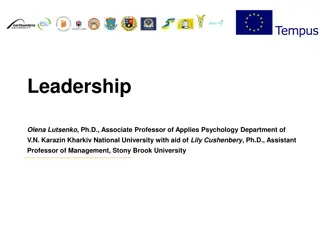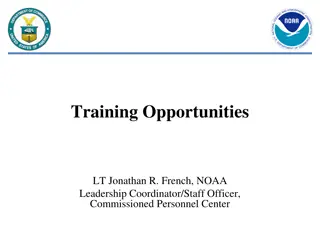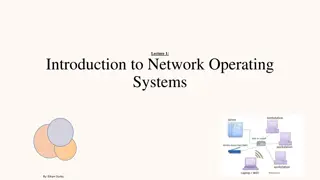Localised Adaptive Spatial-Temporal Graph Neural Network
This paper introduces the Localised Adaptive Spatial-Temporal Graph Neural Network model, focusing on the importance of spatial-temporal data modeling in graph structures. The challenges of balancing spatial and temporal dependencies for accurate inference are addressed, along with the use of distri
3 views • 19 slides
Exploring Helium: A Decentralized IoT Network Revolution
Delve into the world of Helium, a blockchain-based IoT network revolutionizing connectivity. Managed by a community of crypto investors, this global network offers innovative solutions for telecom industry challenges through decentralized deployment and mining of HNT tokens.
0 views • 17 slides
Phụ nữ mang thai ăn cá cơm được không
C\u00e1 c\u01a1m v\u00e0 c\u00e1c m\u00f3n \u0103n ch\u1ebf bi\u1ebfn t\u1eeb c\u00e1 c\u01a1m \u0111\u01b0\u1ee3c r\u1ea5t nhi\u1ec1u ng\u01b0\u1eddi \u01b0a th\u00edch b\u1edfi h\u01b0\u01a1ng v\u1ecb th\u01a1m ngon v\u00e0 r\u1ea5t gi\u00e0u d\u01
0 views • 3 slides
Understanding Leadership: A Comprehensive Overview
Explore the realm of leadership in organizational behavior through topics like recognizing good and poor leadership, the history of leadership theories, and the distinction between leadership and management. Dive into the evolution of leadership approaches, from early trait theories to behavioral an
2 views • 31 slides
Importance of Teaching Life Skills for Healthy Child Development
Life skills education plays a crucial role in promoting healthy child and adolescent development by enhancing adaptive behavior, problem-solving abilities, and social skills. It encompasses three core areas: thinking skills, social skills, and emotional skills. Teaching life skills is essential for
4 views • 15 slides
Smart Antenna Systems Overview: Enhancing Wireless Performance
Smart antenna systems, like adaptive array antennas and switched beam antennas, combine antenna arrays with digital signal processing to transmit and receive signals adaptively. These systems improve signal quality, reduce interference, and increase capacity by dynamically adjusting radiation patter
0 views • 20 slides
Tackling Skewed Data Challenges in Decentralized Machine Learning
Addressing the critical issue of skewed data in decentralized machine learning, this work explores solutions to effectively handle non-iid data distribution, focusing on communication bottlenecks, data skewness, and proposing innovative approaches for decentralized learning over skewed datasets.
0 views • 26 slides
Army Leadership Doctrine Update: ADP 6-22.1 Highlights
New Army Doctrine Publication (ADP) 6-22.1, "Army Leadership and the Profession," emphasizes the foundational principles of leadership with updated content and guidance. It covers essential leadership traits, values, competencies, and behaviors, providing insights into effective leadership practices
1 views • 6 slides
Decentralization and District Development Authorities: A Metagovernance Perspective
The study explores the impact of District Development Authorities (DDAs) on Papua New Guinea's decentralized governance system. It focuses on metagovernance issues such as coordination, leadership, and conflict resolution within the decentralized framework. The introduction, approach, and analysis p
0 views • 14 slides
Decentralized Policies and Liability Laws in Environmental Protection
Explore the concept of decentralized policies in managing environmental pollution, focusing on liability laws, property rights, and voluntary actions. Discover how decentralized approaches offer advantages in addressing environmental externalities and how liability laws can change incentives for pol
1 views • 37 slides
Revolutionizing Communication with ENUMER: A Decentralized Approach
Traditional telephone systems rely on a chain of PSTN providers for call routing, leading to issues such as multiple re-codings and extra fees. ENUMER, a decentralized version of ENUM, offers a faster, more reliable, and cost-effective solution by allowing direct paths from buyer's PBX to seller, by
0 views • 12 slides
Implementing Digital Product Passports: Best Practices and Standards Overview
This content provides insights into implementing Digital Product Passports (DPP) using decentralized identity standards. It includes key projects and partnerships focusing on identity and supply chain ecosystems, showcasing the benefits of a decentralized approach. The report emphasizes the importan
0 views • 8 slides
Establishment of Decentralized Clean Water Service Providers in Winooski Basin
The Clean Water Service Delivery Act of 2019 aims to establish a network of decentralized Clean Water Service Providers (CWSPs) for watersheds in Lake Champlain and Lake Memphremagog basins. CVRPC serves as the CWSP for the Winooski Basin, overseeing projects like stormwater management, natural reso
0 views • 5 slides
Overview of Adaptive Bitrate Algorithms and ABR Design for Video Streaming
This content provides insights into the Adaptive Bitrate Algorithms (AAMP) and ABR Design, focusing on behaviors, throughput considerations, network consistency, profile selection, buffering strategies, and hybrid approaches. It covers topics such as segment downloading, network throughput estimatio
0 views • 5 slides
Decentralized Identity: Enhancing Trust in Web3.0 with DID
The emergence of Decentralized Identity (DID) is set to revolutionize digital identity systems by enhancing end-user trust, solving trust issues in current models, and paving the way for Web3.0. DID prevents forgery, eliminates passwords, and boosts operational efficiency. However, key obstacles lik
0 views • 5 slides
Uncovering Security Risks in Decentralized Exchanges
This study explores the security risks associated with decentralized exchanges (DEX) by investigating unfair trades that occur in these platforms. Through analyzing various scenarios, the research sheds light on potential vulnerabilities that traders may face in DEX environments. Key findings highli
0 views • 20 slides
Security Analysis of Networked Control Systems in Smart Vehicles
This paper explores the security challenges faced by networked control systems in smart vehicles, focusing on adaptive cruise control technology. It discusses the vulnerabilities in cyber-physical systems, such as intrusion detection systems, and highlights the potential risks posed by cyber attacks
0 views • 21 slides
Overview of Peer-to-Peer Systems and Distributed Hash Tables
The lecture discusses Peer-to-Peer (P2P) systems and Distributed Hash Tables, exploring their architecture, benefits, adoption in various areas, and examples such as BitTorrent. It covers the decentralized nature of P2P systems, the challenges they address, and the advantages they offer including hi
0 views • 56 slides
Leadership and Management Insights: Skills, Traits, and Theories
Explore the key differences between leadership and management, uncover the essential skills and qualities of effective leaders versus managers, and delve into various leadership theories such as Trait Theory and Situational/Contingency Models. Discover the fundamental aspects and techniques of leade
0 views • 39 slides
Optical Fiber Calibration System & Adaptive Power Supply by J. Cvach
Introduction to an optical fiber calibration system and adaptive power supply developed by J. Cvach from the Institute of Physics, ASCR, Prague. The system includes an LED driver, notched fibers, and adaptive power supply for various applications, such as the calibration of the CALICE AHCAL and LHCb
0 views • 13 slides
Adaptive Resilient Routing via Preorders in SDN
This research paper discusses the challenges of path-based routing in modern networks and introduces a novel approach called Adaptive Resilient Routing via Preorders in Software-Defined Networking (SDN). The authors emphasize the limitations of traditional routing schemes, the importance of resilien
0 views • 42 slides
Enhancing Learning Design with Adaptive Learning Solutions
Explore the integration of adaptive learning in educational design processes to address common challenges such as high drop-out rates and student disengagement. Discover key players in learning design and the benefits of intelligent adaptive learning systems in catering to individual student needs e
0 views • 56 slides
Navigating Complexity: Leadership and Management in Adaptive Systems
Explore the dynamic world of complex adaptive systems, where traditional command-and-control methods fall short. Learn the value of decentralized management, hybrid organizational structures, and the essential skills needed to thrive in a networked environment. Embrace chaos, foster creativity, and
0 views • 27 slides
Understanding Horticulture and Agriculture: Adaptive Strategies in Human History
This article delves into the development of adaptive mechanisms in human history, focusing on horticulture and agriculture as key strategies. It explains the differences between horticulture and agriculture, explores the concept of cultivation continuum, and discusses pastoralism as an adaptive stra
0 views • 13 slides
Empowering Highland Youth Through Sports Leadership
Empower young people in the Highlands through sports leadership programs aimed at developing leadership skills and creating employment opportunities. The Highland Leadership Programme focuses on providing accredited training to secondary pupils and young leaders, supported by partnerships with vario
0 views • 8 slides
Exploring the Role of Blockchain as a Trusted Third Party in Decentralized Systems
Blockchain technology serves as a decentralized and cryptographic Trusted Third Party (TTP) by enhancing trust, immutability, and censorship resistance in transactions. By distributing trust and utilizing cryptographic protocols, blockchain mitigates the need for a centralized authority, offering a
0 views • 30 slides
Evaluating Adaptive Attacks on Adversarial Example Defenses
This content discusses the challenges in properly evaluating defenses against adversarial examples, highlighting the importance of adaptive evaluation methods. While consensus on strong evaluation standards is noted, many defenses are still found to be vulnerable. The work presents 13 case studies o
0 views • 9 slides
Robustness of Linear Sketches to Adaptive Inputs in Big Data Processing
Exploring the robustness of linear sketches in handling adaptive inputs in big data scenarios. The study covers applications like compressed sensing, data streams, and distributed computation. It delves into the challenges posed by adaptive inputs and the implications for correctness and efficiency
0 views • 27 slides
Explore Adaptive Recreation and Sports for Individuals with Disabilities
Discover adaptive recreation opportunities for individuals with disabilities, including winter and summer activities such as skiing, biking, kayaking, and rock climbing. Learn about the mission of providing inclusive leisure options and find volunteer opportunities with organizations like High Count
0 views • 8 slides
Enhancing Network Stability with Network Monitoring Systems
Network monitoring is crucial for efficient management and proactive issue detection in a network environment. Factors influencing an effective network system include choosing the best OEM, SLA agreements, and selecting a reliable System Integrator. Reactive monitoring can lead to financial losses a
0 views • 12 slides
Enhancing Climate Change Adaptive Capacity Through ICTs
Developing adaptive capacity to address climate change in vulnerable communities is crucial. Integrating expert and local knowledge using Information and Communication Technologies (ICTs) can help, but challenges like digital exclusion must be overcome. Understanding climate change as a complex prob
0 views • 12 slides
Multivariate Adaptive Regression Splines (MARS) in Machine Learning
Multivariate Adaptive Regression Splines (MARS) offer a flexible approach in machine learning by combining features of linear regression, non-linear regression, and basis expansions. Unlike traditional models, MARS makes no assumptions about the underlying functional relationship, leading to improve
0 views • 42 slides
Exploring Adaptive Optics Systems in Astronomy: Comparative Analysis of AO Systems for HR 8799 Planetary System
Delve into the world of adaptive optics (AO) systems through a focused investigation on imaging the HR 8799 planetary system. Compare and contrast different AO systems, discuss science goals and design choices, and analyze observational details and results. Explore which AO system is optimal for HR
0 views • 27 slides
Constrained Adaptive Sensing and Benefits of Adaptivity
Constrained adaptive sensing involves estimating sparse signals with constraints, utilizing strategies like nonadaptive sensing and adaptive sensing. Benefits of adaptivity include reducing errors and improving estimation accuracy in signal processing. It explores the potential for improvement in re
0 views • 17 slides
Leadership Skills Overview: Traits, Theories, and Development
Explore leadership skills presented by Dr. Pushpinder Kaur Benipal, covering traits like adaptability, decisiveness, and social skills. Delve into early and functional leadership theories, understanding the importance of behavior over traits. Develop your own leadership potential with insights into
0 views • 15 slides
Understanding Human Adaptive Strategies: A Historical Perspective
Humans have utilized various adaptive strategies throughout history to survive and secure a livelihood, including hunting-gathering, horticulture, pastoralism, etc. This session introduces these strategies, their characteristics, and why they persist in modern times. The discussion also covers the h
0 views • 11 slides
Understanding Leadership Theories and Styles
Leadership involves influencing a group towards a common goal. Traits, interaction styles, and group dynamics play vital roles in effective leadership. Various theories, such as Trait Theories and Synthetic Leadership Theories, provide insights into different aspects of leadership. Understanding lea
0 views • 41 slides
Decentralized Biowaste Management for Sustainable Resource Valorization
The Decisive Final Conference presented a project focusing on decentralized biowaste management to collect and valorize biowaste from major producers. The project aimed to address challenges in biowaste processing and resource recovery. Key aspects included the difference between planned and actual
0 views • 13 slides
Leadership Training Opportunities for NOAA Personnel
Explore various training programs available for NOAA personnel, including Basic Officer Training Course (BOTC), Leadership Development, and Operational Leadership Training. Discover the importance of leadership skills, military protocol, and NOAA Corps heritage in equipping officers for their roles.
0 views • 16 slides
Overview of Network Operating Systems and Their Features
Network operating systems are essential software that manage computer resources and provide services for programs. This lecture covers the types of computers in a network, features of operating systems such as process and memory management, disk and file systems, and networking capabilities. Underst
0 views • 27 slides
